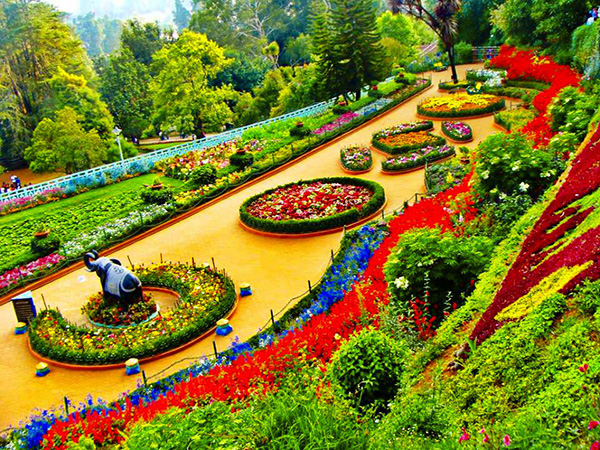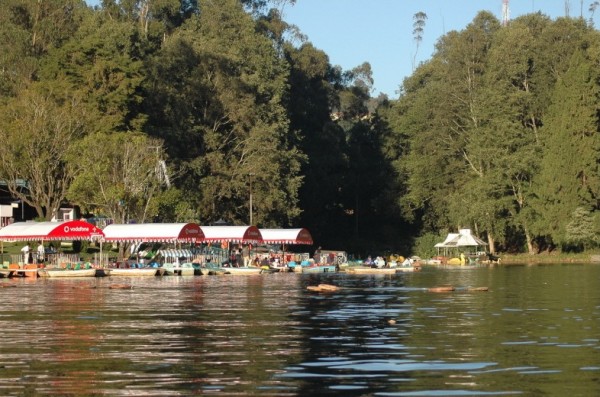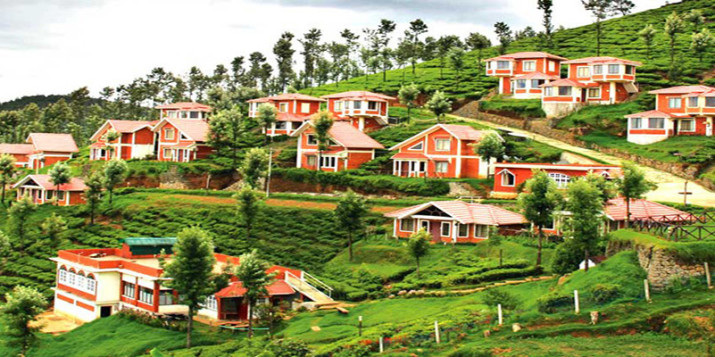There is a nip in the early morning air at Mettupalayam station in Tamil nadu, in southern India. The overnight Blue Mountain express has just arrived from Madras/Chennai. On the adjoining platform stands the familiar line-up of blue bogeys of the Nilgiri Mountain Railway that will take the pasengers up into the Nilgiri hills, ( Blue Mountains) to the popular, former British hill resort of Ooty or Ootacamund (official name Udhagamandalam).



Unlike the “toy trains” of the north, this one is referred to as the “hill train.” The train covers a distance of 46 km (29 miles); through 208 curves, 16 tunnels, and 250 bridges (the longest tunnel measuring 97 meters). The uphill journey takes around 290 minutes (little under five hours), and the downhill journey 215 minutes (about three and a half hours). Steam-driven till some years back, it now operates on diesel.

The single-track line ascends toward the clouds from 1,070 feet (326 m) to 7,228 feet (2,203 m) – an incredible engineering achievement a century ago, no less commendable even today. The railway also represents the latest technology of its time and uses unique the rack and pinion traction arrangement (also referred to as the “third track”) to negotiate steep gradients.

Quaint little stations with names like Runymede, Adderly, Hill grove, Lovedale and Fernhill punctuate the route. Halfway up, at Coonoor, another well-known hill resort, the terrain suddenly changes, as lush primal forests give way to tranquil placid greens, dotted with homesteads and tea factories.

A little further, above Valley View, endless valleys telescope into each other, little spires faintly visible in the distance; reminiscent of something right out of The Sound of Music. For those who miss the ride up, a shorter hour-long version can be had between Ooty and Coonoor.
The Nilgiri Mountain Railway was declared a World Heritage Site by UNESCO in July 2005.


